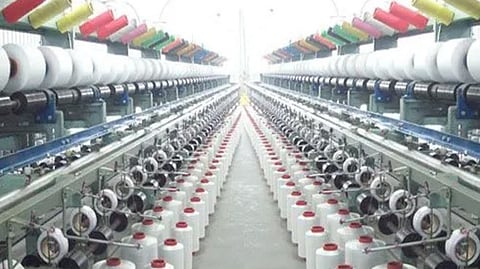

COIMBATORE: Spinning mills in the state have announced operating their units at 50 per cent capacity from Monday due to heavy loss following a drastic drop in the prices of yarn.
As the global economic recession has hit yarn and fabric exports, the domestic market has been flooded with yarn sold by exporters.
“Therefore, the spinning mills are not able to get a suitable price for the yarn and are incurring huge losses. Traders are refusing to buy yarn produced by over 1,500 spinning mills in Tamil Nadu due to import of yarn and fabric from China, Vietnam and Bangladesh at a low cost. Already, mills are operated with very low capacity utilisation. If this uncertainty prolongs, it may affect the sustainability of the spinning industry,” said S Jagadesh Chandran, secretary of the South India Spinner Association, along with Indian Spinning Mill Owners Association president G Subramaniam, Recycle Textile Federation president Jayabal and Open End Spinning Mills Association president G Arulmozhi, while jointly addressing the reporters.
To repay the monthly bank loans and interest, as well as to foot high electricity bills, GST and increasing labour wages and ESI, PF, the spinning mill entrepreneurs are forced to sell yarn at low price. “The mills are incurring huge losses of about Rs 20 to Rs 25 per kg of yarn. The price of yarn is not commensurate with the price of cotton and also the production cost. To overcome the crisis, the mill owners have decided to run mills at 50 per cent capacity. If the situation continues, they intend to shut down the mills completely,” they said.
On behalf of the Federation of MSME Spinning Mills, they appealed to the Centre to reduce interest rate in banks to the previous level of 7.75 per cent, promote export of yarn and restructure the outstanding short term loan of Emergency Credit Line Guarantee Scheme (ECLGS), while providing six months holiday period and seven years repayment period at lower interest.
The federation also sought the state not to increase electricity tariff, promote green energy by providing 15 per cent capital subsidy, abolish rooftop solar network charges and also revert back to the old rate of demand charges.
Visit news.dtnext.in to explore our interactive epaper!
Download the DT Next app for more exciting features!
Click here for iOS
Click here for Android